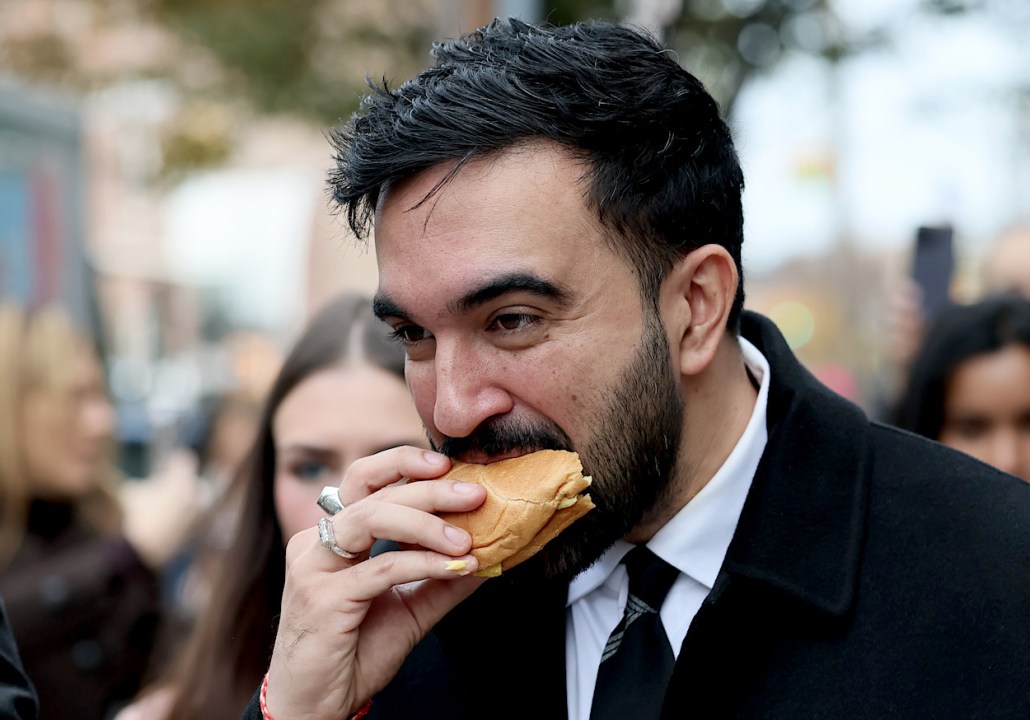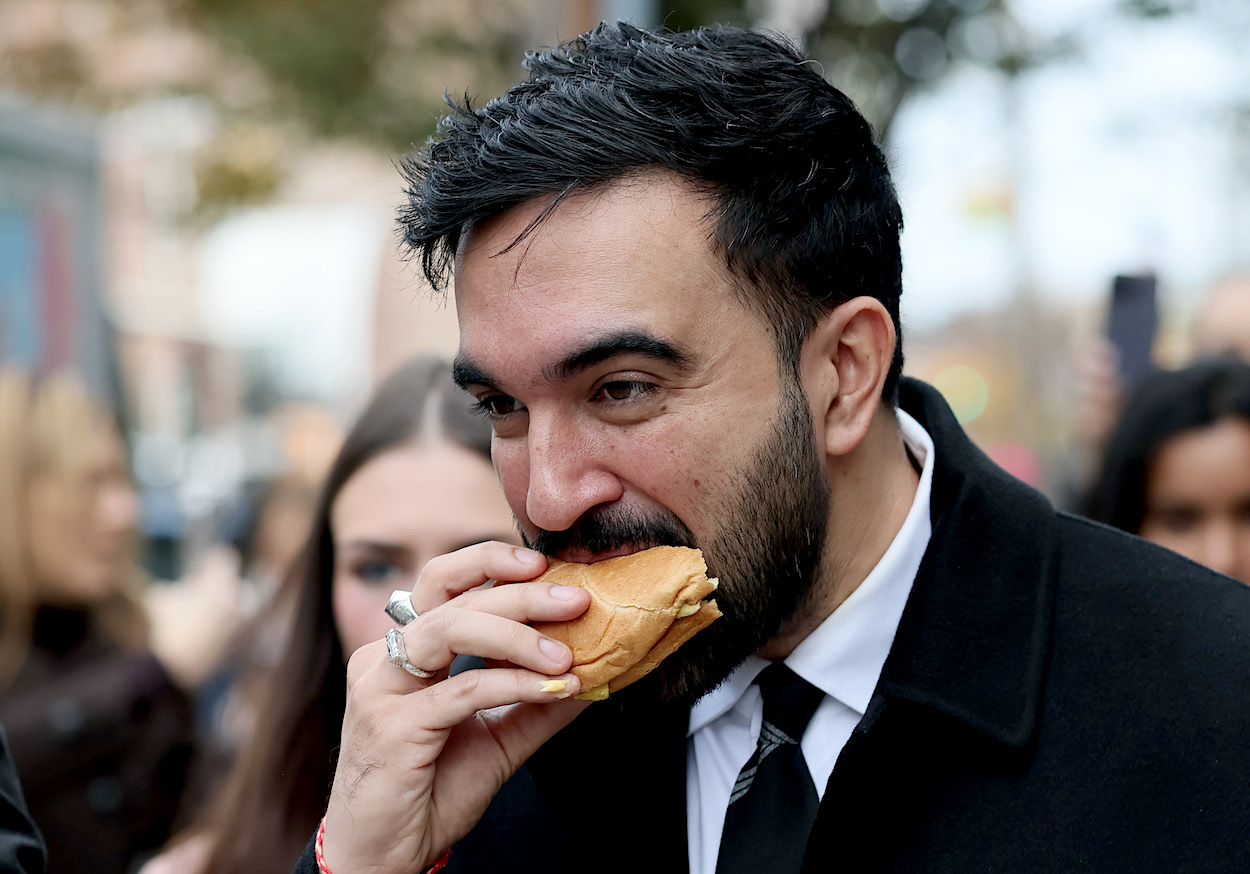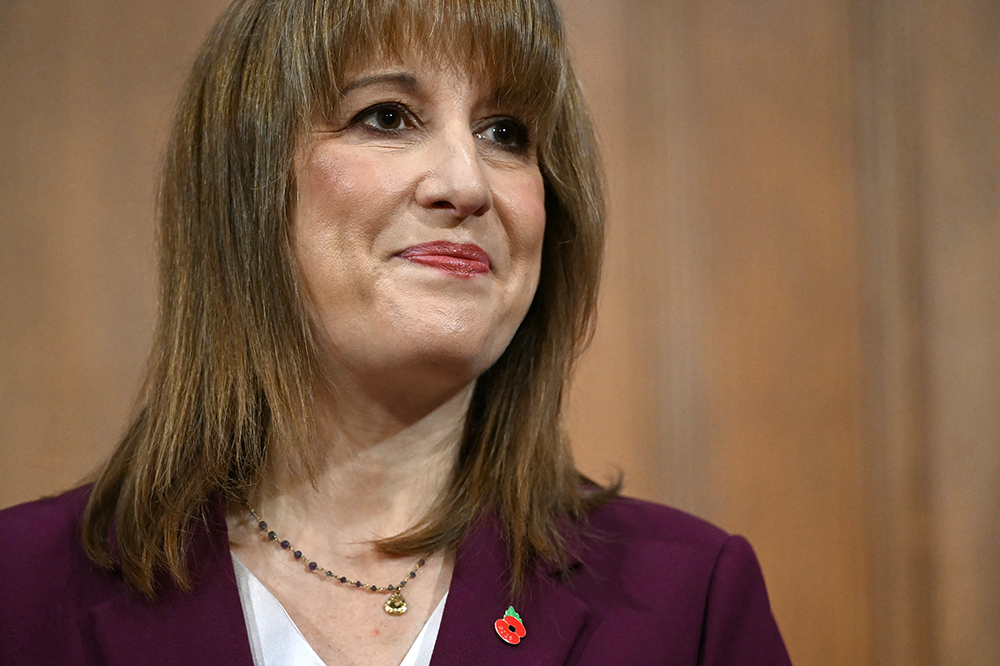There’s no shortage of catastrophic predictions for New York under Zohran Mamdani’s leadership. While the city probably won’t see breadlines, the wildly expensive, exhaustingly derivative restaurants that dominate its food scene are likely to become more dominant.
Mamdani’s big pledge on food is to ‘make halal eight bucks again’. But it’s a ‘false promise’ of street-food affordability according to Heritage Foundation economist Nicole Huyer. She says Mamdani’s economic programme, which includes higher taxes, steeper leasing regulations and a pledge to raise the minimum wage to $30 an hour by 2030, will effectively make restaurants even more expensive.
‘All of these great socialist policies that [Mamdani’s] planning to implement – he’s saying that it’s going to bring affordability back and that he’s pro-small business,’ Huyer told The Spectator, but ‘it’s very burdensome for small businesses and it makes it difficult for those that are just starting out. Whereas the more corporate chain restaurants might be better equipped to absorb those costs, high taxes and tight regulations make it difficult to start and grow a business, and when restaurants have those high start-up costs, they pass those on to the consumer.’
Walk down any street in New York and you will notice lots of similar-looking places: from casual to ritzy hotspots, the multi-location restaurant group model reigns supreme. Despite Mamdani’s claim that he will champion the little guy, chain restaurants are likely to become even more dominant on his watch. Take a New York restaurant company such as Major Food Group, which owns trendy hotspots including Carbone, Sadelle’s and Torrisi. It wouldn’t like to be considered a ‘chain,’ but the business model is effectively the same: combining capital and condensing costs to expand and dominate. It results in similarities in menus, aesthetics and culture. And while such groups can more easily absorb the new costs under Mamdani, riskier models and independent or family-owned restaurants will probably no longer be able to.
That’s assuming they open at all. There is already much uncertainty about what Mamdani’s reforms will mean for the restaurant world. If landlords are prevented from evicting tenants, as is promised, it will ‘create serious uncertainty in the market’, one New York-based commercial real estate agent told The Spectator. ‘It will just make it harder to sign a lease on a restaurant, because there will be fewer landlords willing to take the risk of leasing their property. There are smart ways to structure a lease: build in a sales kick, sign for five years instead of ten, negotiate terms that actually set you up to be profitable. But you can’t legislate your way out of the basic risk-reward of running a restaurant in New York City.’
Trying to do so is likely to result in disaster. There are about 300,000 New Yorkers employed by the restaurant subsector, according to the state comptroller, and the average salary is around $17 an hour – before tips. That’s a far cry from the $30 minimum wage pushed by Mamdani.
‘The first push will most likely be restaurant workers’ wage increase, possibly even an elimination of the tipped wage element which allows tipped workers to get a lower minimum,’ says chef and restaurateur Andrew Gruel. ‘Restaurants will have to cut [costs] to make any profit at all, decreasing quality and service, which will then lead to lower sales and a downward spiral.’
However, not all the big players in New York’s restaurant scene are on the same page. Keith McNally – the force behind institutions such as Balthazar, Minetta Tavern and the Odeon – has called Mamdani ‘fantastic’ and ‘the future’, while dismissing his own ‘affluent, paranoid friends’.
One such friend is fellow restaurateur Dave Rabin, who told the New York Post he would ‘do anything to try to stop [Mamdani]’ from becoming mayor. ‘I sent [McNally] some of my posts on Mamdani, and instead of responding to me, he took one of them and posted it and called me a racist.’
Predictably, New York’s food service unions are on board with Mamdani’s promises. Unite Here Local 100, the city’s primary restaurant workers’ union, offered an early and ‘proud’ endorsement of Mamdani back in April. Workers United, which represents several industries including food services, came out strong for Mamdani as well. Neither union responded to a request for comment.
Mamdani may end up having a similar effect on New York’s restaurant industry to Covid
It remains to be seen how they will respond if a tightening industry reduces their membership overall. Restaurant groups, while better situated to weather the storm, aren’t fully immune and, whether through closures or layoffs, staff at all levels of the industry will eventually feel the pain as well.
‘Oddly, they’re supportive [of Mamdani],’ restaurateur Joe Germanotta said of his staff during an interview on Fox News. ‘But if this guy gets in you better start looking for a job,’ he said in response to the higher costs restaurants like his will face.
Mamdani may end up having a similar effect on New York’s restaurant industry to Covid. While pandemic-era inflation and regulations severely hurt the restaurant industry overall, the large restaurant groups that dominate New York largely did just fine; Major Food Group actually expanded. ‘You can’t be a one-restaurant chef any more,’ said chef Eric Huang of his own struggles to scale and compete during this time. The numbers seem to check out. Between 2019 and 2022, Franchise Times, which issues annual reports on the country’s top 200 restaurant groups, reported that revenue in the industry grew from £30.9 billion to £40.7 billion. Though overall growth in the restaurant sector is currently down, revenue for the top 200 continues to grow. New York-based website Eater made it official, declaring that ‘restaurant groups are the new chains’.
High-end restaurant groups aren’t bad, per se, and New York has many of them. That’s to say nothing of the elevated fast-casual takeover (Dig, Little Beet, By Chloe), which offers the convenience of Starbucks or Chipotle for the more refined urbanite. Yet often, they deliver a dining experience more based on marketable aesthetics, trendy buzzwords and perceived exclusivity than actual food or service. This misplaced emphasis undermines New York’s foodie dynamism, the very diversity that progressives like Mamdani claim to champion.
So forget affordability; that’s long dead. Under Mamdani’s democratic socialist rule, restaurants are only going to get more expensive. But given that New York is the world’s richest city, habitual diners won’t be too perturbed. The real crime is that the New York food scene will be further dominated by the tastes of a select few, and a dining experience that all blends into blandness.
This article was originally published in The Spectator’s World edition.








Comments